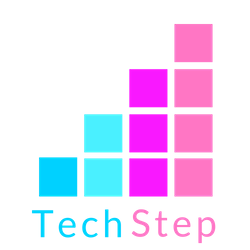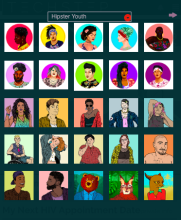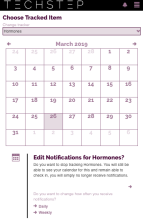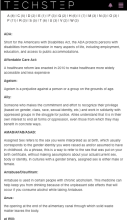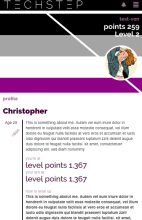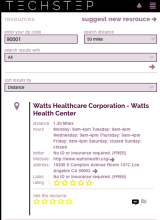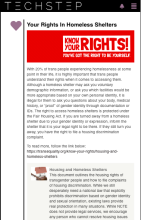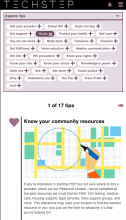Technology-based stepped care to stem transgender adolescent risk transmission
Protocol Overview
TechStep is a two-condition, technology-based randomized controlled trial (RCT), with a stepped care approach, among high-risk HIV-negative trans feminine, trans masculine, and gender non-conforming (here after: trans*) youth for reducing sexual risk behaviors (e.g., condomless anal intercourse, engagement in sex work, sex while feeling the effects of alcohol or drugs) and increasing PrEP uptake.
Trans youth were recruited in the areas of five cities (Boston, Houston, Los Angeles, New York, and Philadelphia) to participate in a 3-arm RCT to determine immediate and sustained effects of the Text+Step intervention versus the App+Step intervention compared to an information-only control condition (“Info” arm). All participants received one of the interventions for 6 months, with assessments occurring at baseline and every 3 months thereafter until month 9. Trans youth randomized to either of the technology-based intervention arms (Text or App) were evaluated at the 3-month follow-up assessment time points to determine if they remained at the current level of intervention, or if they were eligible for randomization to also receive e-coaching sessions in addition to their originally assigned intervention. All participants assigned to the Text+Step intervention arm began with the text messaging intervention. Participants assigned to the App+Step intervention arm began with the WebApp intervention. At the first follow-up assessment time point, information about their sexual behavior in the past 3 months and whether they began or stopped using PrEP was used to determine if they required a more intensive intervention approach. Participants who did not demonstrate intervention responsiveness at the 3-month follow-up assessment were re-randomized, in a 2:1 ratio, to either remain in the original technology-based intervention (i.e., Text or App) or add e-coaching to the original technology-based intervention (i.e., Text+E-coaching or App+E-coaching). This re-randomization allowed for a comparison of intervention effects between the technology-based interventions (i.e., text or app) plus e-coaching to the technology-based intervention alone. The control condition received the same information-only intervention for the entire 6-month intervention period.
Principal Investigators:
Cathy Reback, PhD | Friends Research Institute
Keith Horvath, PhD | San Diego State University
ClinicalTrials.gov Number: NCT04000724
Duration
TechStep participants in the RCT were enrolled for 9 months.
Sample Size
Total study sample is 355 of which the following will be enrolled for each phase: 1) up to 80 participants for focus groups to inform intervention adaption; 2) 275 participants for a randomized controlled trial of TechStep, with participants randomized to either text messaging stepped care (n=108), WebApp stepped care (n=83) or control (n=83) condition.
Eligibility
- Self-identified as trans feminine, trans masculine or gender non-conforming OR birth sex and current gender differ;
- Between the ages of 15 to 24 years old;
- Negative HIV test
- Report anal or vaginal sex (either insertive or receptive; excluding sex toys) in the previous 12 months;
- Live in the area and availability to meet with research staff at either the Baylor College of Medicine (BCM) Adolescent Medicine Trials Unit in Houston, Children’s Hospital of Philadelphia, Children’s Hospital Los Angeles, the Center for HIV Educational Studies and Training (CHEST) in New York City, or the Fenway Institute in Boston;
- Have a mobile device with SMS and Internet access capabilities; and
- Full list of eligibility and exclusion criteria available on ClinicalTrials.gov
Outcomes
Primary Aim 1: Conduct formative research to develop the stepped care (text messaging, WebApp, and e-coaching) interventions and refine iterations through input from focus groups with trans youth at the four study sites (n=80) and a youth advisory board (YAB).
Primary Aim 2: In a 3-arm RCT (N=250), assess the differential immediate and sustained effects of a low intensity Information (“Info”) arm compared to a text messaging stepped care intervention (“Text+Step”) arm compared to a WebApp stepped care intervention (“App+Step”) arm among high-risk, HIV-negative trans (15-24 years old) for reducing sexual risk behaviors and increasing PrEP uptake.
Secondary Aim 3: Determine the added benefit of Text+e-coaching or WebApp+e-coaching versus Text alone or WebApp alone for reducing sexual risk behaviors and increasing PrEP uptake.
Secondary Aim 4: Determine the impact of structural- (e.g., transphobia, housing insecurity, educational attainment, access to healthcare) and individual-level (e.g., identity formation, gender transition, gender expression, stigma, discrimination) trans-specific factors as moderators of intervention outcomes.
Publications
- Giovenco D, Muessig KE, Horvitz C, Biello KB, Liu AY, Horvath KJ, Golinkoff JM, Reback CJ, Hightow-Weidman L. Adapting technology-based HIV prevention and care interventions for youth: lessons learned across five U.S. Adolescent Trials Network studies. mHealth. 2021;7:21. doi: 10.21037/mhealth-20-43. eCollection 2021. PubMed PMID: 33898590; PubMed Central PMCID: PMC8063021.
- Benkeser D, Horvath K, Reback CJ, Rusow J, Hudgens M. Design and analysis considerations for a sequentially randomized HIV prevention trial. Stat Biosci. 2020 Dec;12(3):446-467. doi: 10.1007/s12561-020-09274-3. Epub 2020 Mar 25. PubMed PMID: 33767798; PubMed Central PMCID: PMC7986973.
- Skeen SJ, Cain D, Gamarel KE, Hightow-Weidman LB, Reback CJ. mHealth for transgender and gender-expansive youth: harnessing gender-affirmative cross-disciplinary innovations to advance HIV prevention and care interventions. Mhealth. 2021;7:37. doi: 10.21037/mhealth-20-60. eCollection 2021. Review. PubMed PMID: 33898606; PubMed Central PMCID: PMC8063017.
- Reback CJ, Horvath KJ, Rusow JA, Cain D, Benkeser D. Technology-based Stepped Care to Stem Transgender Adolescent Risk Transmission: Study Protocol for a Randomized Controlled Trial. JMIR Res Protoc. 2020 | vol. 9 | iss. 8 | e18326. doi: 10.2196/18326
- Hightow-Weidman L, Muessig K, Claude K, Roberts J, Zlotorzynska M, Sanchez T. Maximizing Digital Interventions for Youth in the Midst of Covid-19: Lessons from the Adolescent Trials Network for HIV Interventions. AIDS and Behavior. 2020. https://doi.org/10.1007/s10461-020-02870-w
- Zlotorzynska M, Bauermeister JA, Golinkoff JM, Lin W, Sanchez TH, Hightow-Weidman L. Online recruitment of youth for mHealth studies. mHealth. 2021;7:27. doi: 10.21037/mhealth-20-64. eCollection 2021. PubMed PMID: 33898596; PubMed Central PMCID: PMC8063013.

